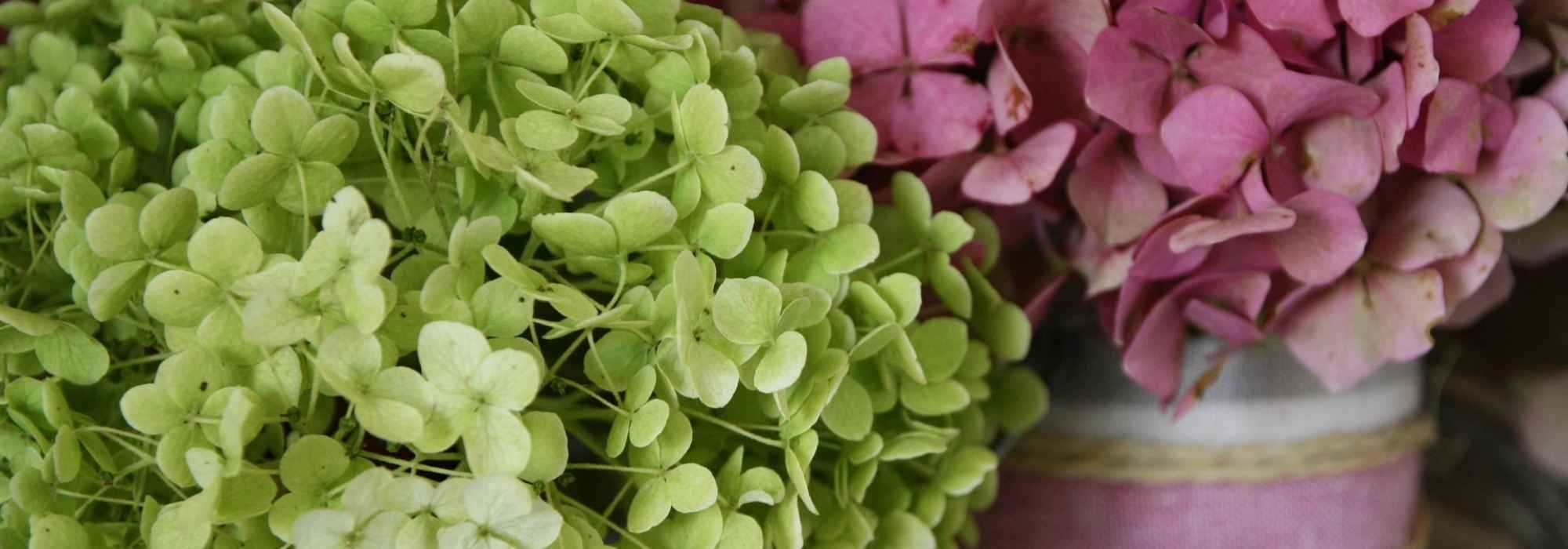
How to dry hydrangea flowers? - Tutorial
methods and tips
Contents
Hydrangea flowers are very decorative in bouquets and bring their lovely colours to your home. Why not extend this pleasure all year round by drying them? They are just as stunning! Discover my explanations for drying your favourite hydrangeas using several methods: naturally, with glycerine, or with the help of silica gel.
When to cut hydrangeas for drying?
The ideal time to cut hydrangea flowers is at the end of flowering, when the sap is descending, that is to say between late September and early October. Be aware that if you do it too early, the sepals will wilt.
On a sunny and dry day, take hydrangea branches, leaving about ten centimetres of stem. Be careful to cut just above healthy buds, without damaging them, so as not to compromise future flowering.
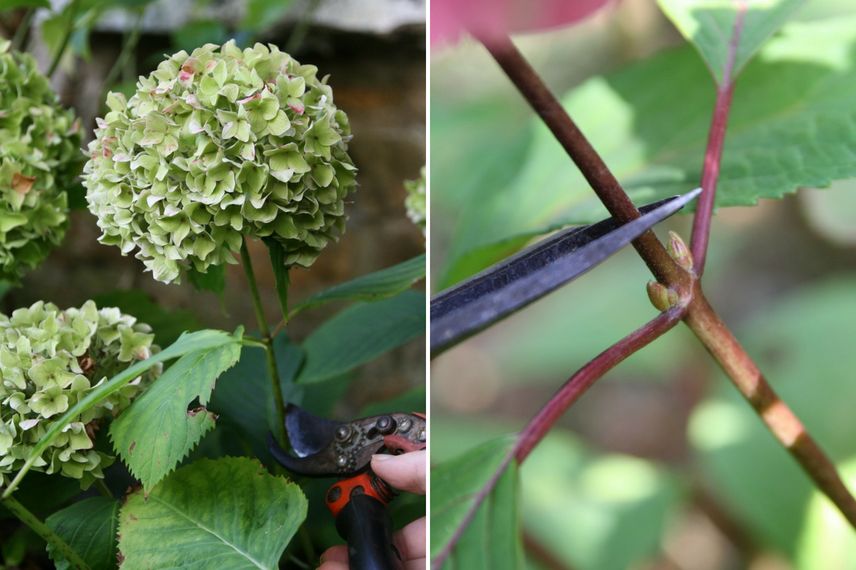
Cut your hydrangeas just above the buds.
Remove the leaves to limit evapotranspiration and improve preservation. Also, remove any damaged flowers.
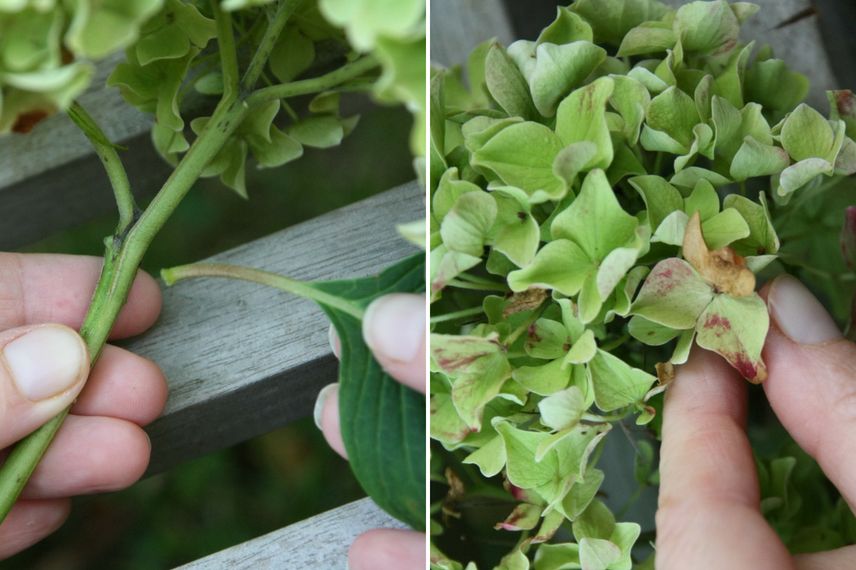
Remove all leaves and damaged flowers.
Drying hydrangea flowers naturally
This first method is the most simple and economical. It involves drying your hydrangea flowers naturally upside down.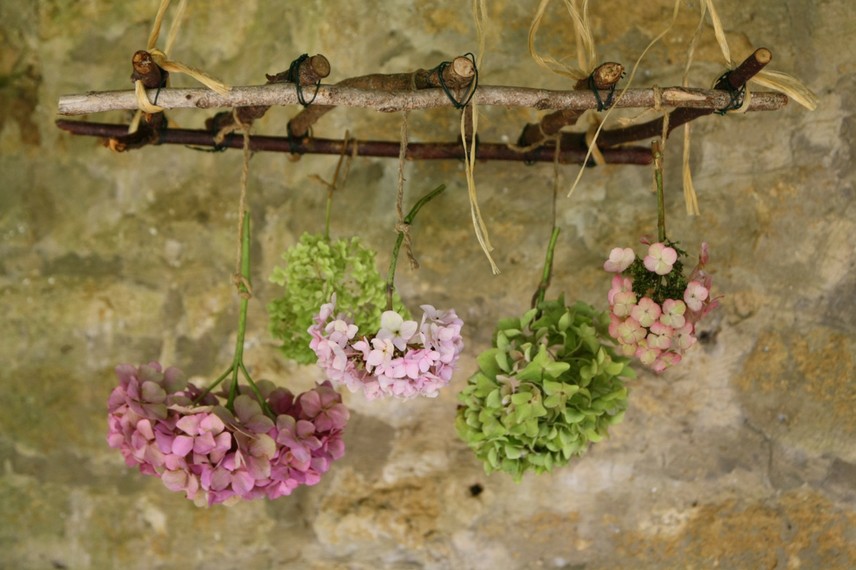 Hang your hydrangeas upside down on a support.
Hang your hydrangeas upside down on a support.
To do this, attach your inflorescences using string or raffia, then hang them upside down in a dark, dry, and well-ventilated room (like an attic or garage, for example) to prevent rotting. Darkness is an important condition as bright light alters the colours. In a living room that is not too bright, it works as well. The colours will be more faded, which has its own charm.
Discover other Hydrangeas
View all →Available in 2 sizes
Available in 2 sizes
Available in 1 sizes
Available in 1 sizes
Available in 1 sizes
Available in 1 sizes
Available in 1 sizes
Available in 1 sizes
Available in 2 sizes
Available in 1 sizes
Drying hydrangeas in a vase, with or without glycerin
It is also possible to dry your hydrangea flowers simply in a vase. If you wish, you can make a bouquet and tie it with string. Trim the stems a little to even them out if necessary.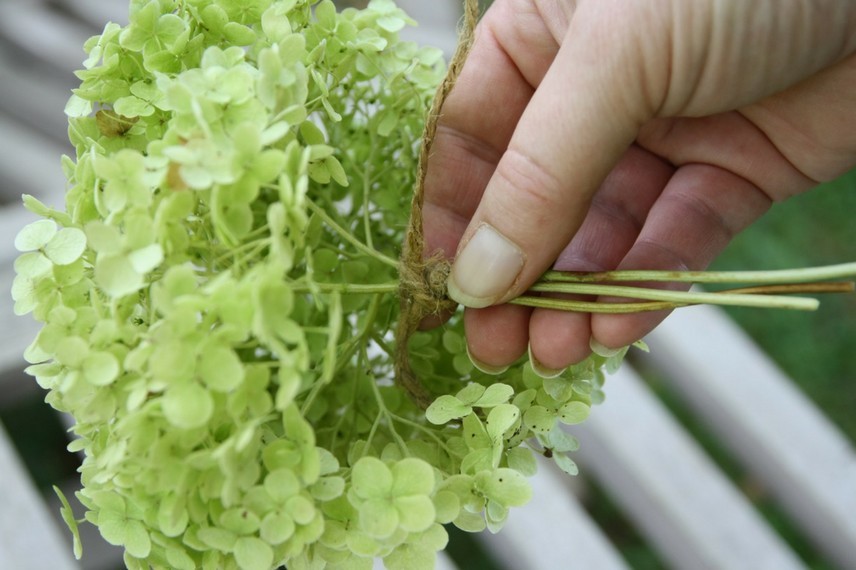 Tie a few hydrangea stems to create a bouquet.
Tie a few hydrangea stems to create a bouquet.
You can choose between two options: drying with or without glycerin in the water of the vase.
Glycerin is a colourless and oily liquid used in the manufacture of cosmetics. You can find it at pharmacies or online, in specialised shops. This ingredient is not essential, but it helps to maintain a certain flexibility in your flowers during drying. Without glycerin, the petals (which are actually sepals in hydrangeas) tend to become brittle, like parchment.
To dry your hydrangeas in a vase without glycerin:
- pour 2 to 3 cm of water into the bottom of a vase,
- simply place your stems or bouquet in the vase,
- wait… The water will evaporate and your flowers will dry gently.
To dry your hydrangeas in a vase with glycerin:
- In a bowl, whisk together hot water and glycerin in equal parts. The water should be hot to achieve a homogeneous mixture.
- let the mixture cool, then follow the steps of the method without glycerin until the solution is fully absorbed.
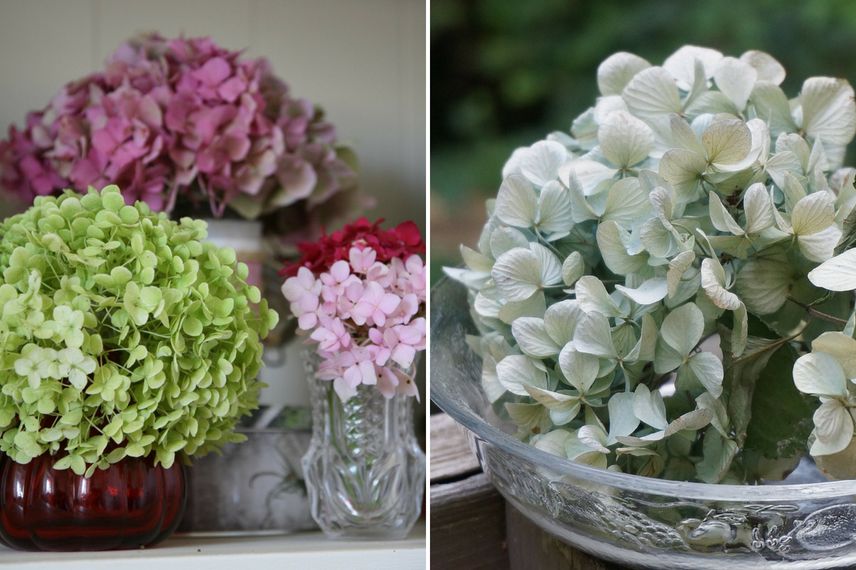 Hydrangea flowers dry very well in a vase.
Hydrangea flowers dry very well in a vase.
Read also
How to grow hydrangeas?Drying hydrangea flowers with silica gel
Silica gel allows you to dry your hydrangeas quickly while preserving their beautiful colours. It comes in the form of crystals or small beads, which you can find online or in craft stores. However, be aware that hydrangea heads are bulky, so you will need a significant amount of crystals (1 kg), and they can be quite expensive.
To dry hydrangea flowers with silica gel:
- equip yourself with an airtight box large enough to accommodate your hydrangea flowers,
- pour a layer of silica crystals or beads into the bottom of your box,
- place your hydrangeas to dry on this bed,
- continue to gently pour the silica gel until the flowers are covered,
- close your box,
- wait 2 or 3 days (sometimes a bit longer) until the petals are completely dry,
- wear gloves and retrieve your dried inflorescences.
The preservation of dried hydrangea flowers
When you dry your hydrangeas naturally or in a vase, the drying time varies between 10 and 30 days depending on the flowers and varieties of hydrangeas. However, the inflorescences retain their beautiful colours better when the drying process is quick. The method using silica gel has the advantage of speeding up the drying.
Once your hydrangea inflorescences are well dried, you can spray them with hairspray to protect them from dust and ambient moisture. This is not mandatory, as hairspray tends to slightly yellow the flowers.

Arrange them in a vase, in bowls, baskets, etc. They can also be used for making floral arrangements. Dried hydrangea flowers can last for several years.
Finally, cleaning consists of using a hairdryer from time to time and possibly re-spraying once a year.
Which varieties of hydrangeas are suitable for making dried flowers?
Some hydrangeas are difficult to dry. Here is a non-exhaustive list of hydrangeas that are well-suited for drying:
- Hydrangea macrophylla ‘Générale Vicontesse de Vibraye’
- Hydrangea macrophylla ‘Ayesha’
- Hydrangea macrophylla ‘Lanarth White’
- Hydrangea macrophylla ‘Madame Emile Moullière’
- Hydrangea macrophylla ‘Mariesii Perfecta’
- Hydrangea macrophylla ‘Sœur Thérèse’
- Hydrangea macrophylla ‘Veitchii’
- Hydrangea quercifolia
- Hydrangea arborescens ‘Annabelle’
- Hydrangea macrophylla ‘Deutschland’
- Hydrangea macrophylla ‘Hopaline’
- Subscribe!
- Contents































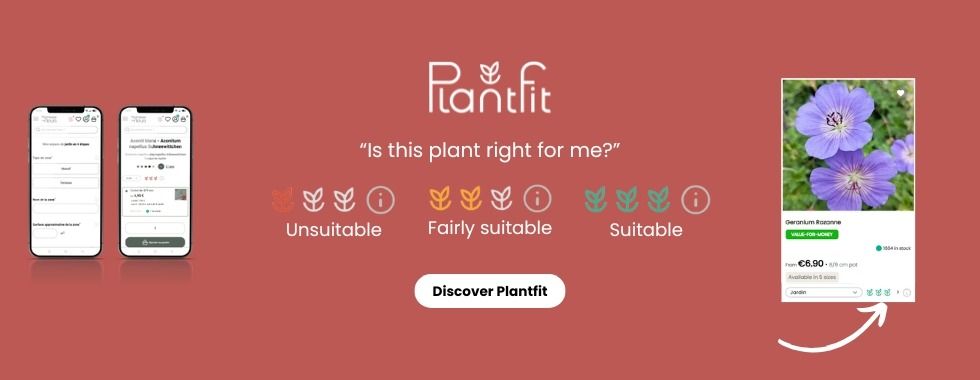
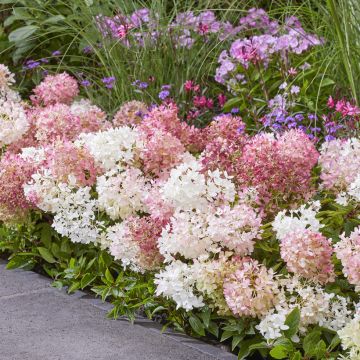
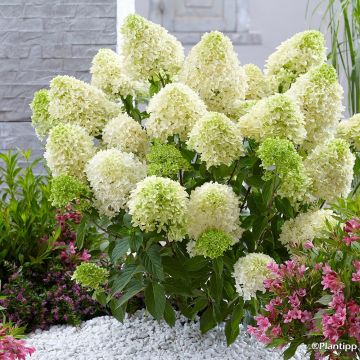
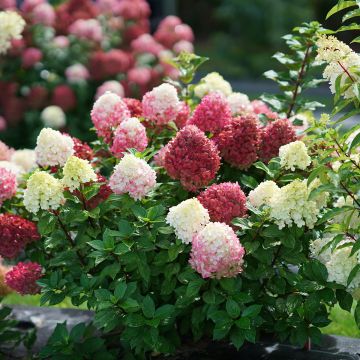
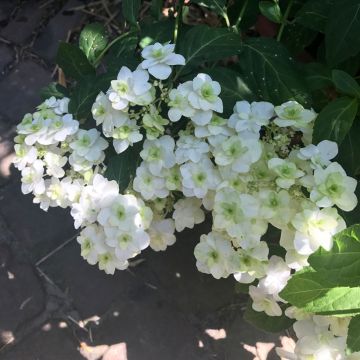
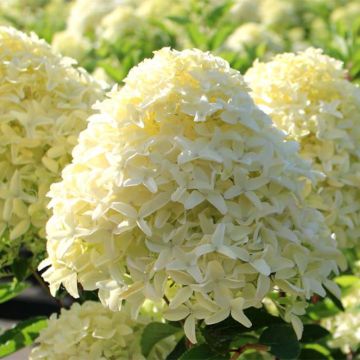
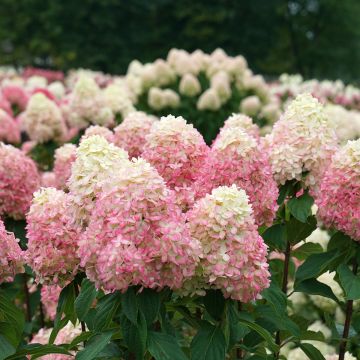
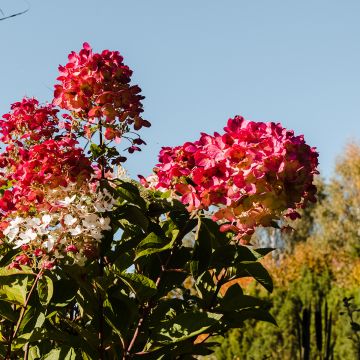
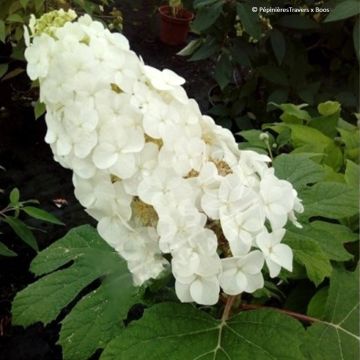
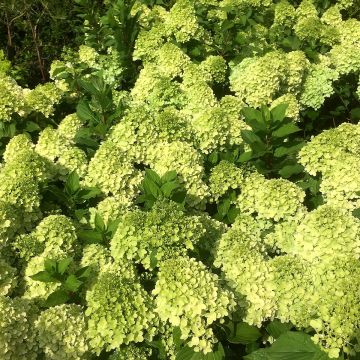
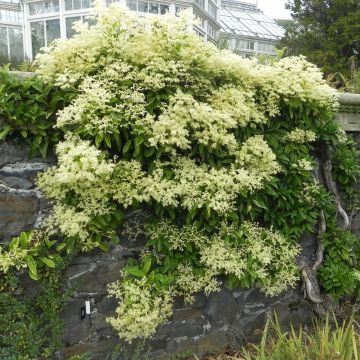
Comments